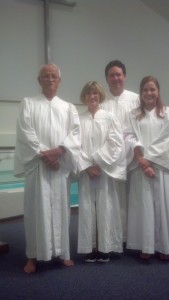 In an article entitled, or a relationship?” Dr. R. C. Sproul, Jr, writes:
In an article entitled, or a relationship?” Dr. R. C. Sproul, Jr, writes:
Yes. There are, of course, all manner of things that separate the Christian faith from all other faiths. Ours is the story of God condescending to us, rather than we climbing to Him. Ours is a story grounded in history, and eyewitnesses. And most importantly of all, ours is true. If then religion means merely how man earns God’s favor, if religion is merely the myths of our fathers, if religion is but the lies men tell themselves to feel better about themselves, then of course, Christianity is no religion.
What is Religion?
It is, however, perfectly appropriate to use the term religion as “that set of dogmas, institutions and practices by which a supreme being is submitted to and worshipped.” In this sense, of course Christianity is a religion. Our faith is not merely grounded in but subsists in historical realities. We are what we are, we do what we do, we believe what we believe, we proclaim what we proclaim precisely because a man and a woman disobeyed their Maker and plunged all their descendents into the vortex of the wrath of God, because God took on flesh and came as the New Man, and in space and time, under Pontius Pilate, lived a perfect life, died an atoning death, and walked out of His tomb three days later, alive. Forty days after that, this same Man, God in the flesh, ascended to His everlasting throne where He is now bringing all things under subjection. We are the people of the Story, the true Story.
Love, Hate & Religion
What this aphorism, “Christianity is a relationship, not a religion,” is getting at however, is not only true, but important. That is, the Christian faith is not merely signing off on these historical events. “Yes, I believe this happened. Yes, I believe that happened.” The devil himself, along with his minions, can agree with the historical account (James 2:19). They can even agree with the sound interpretation of that history. They believe Jesus died for sinners. They believe men have peace with God as they repent and trust in His finished work alone. Trouble is, they hate the truths they can affirm (much like a godly person can affirm that the Baltimore Ravens are the current Super Bowl champions, and hate that truth). They know the religion. Their relationship is all hate.
What we are affirming when we emphasize the relationship is that we delight not just in the truths about God the Father, God the Son and God the Holy Spirit, but that we delight in them. What we affirm, better still, is that because of these historical truths, we have not only been forgiven, but adopted, that we have been made the very children of God. Because of these historical truths, because of His love for us from eternity, we are indwelt by the Spirit. Because of these historical truths, because of what He did, we are the very bride of Christ. Because of the love of God shed abroad in our hearts, we are together the very body of Christ. Christianity isn’t then a relationship, but a series of relationships, all grounded not in a religion, but the religion.
This post was first published on rcsprouljr.com.



